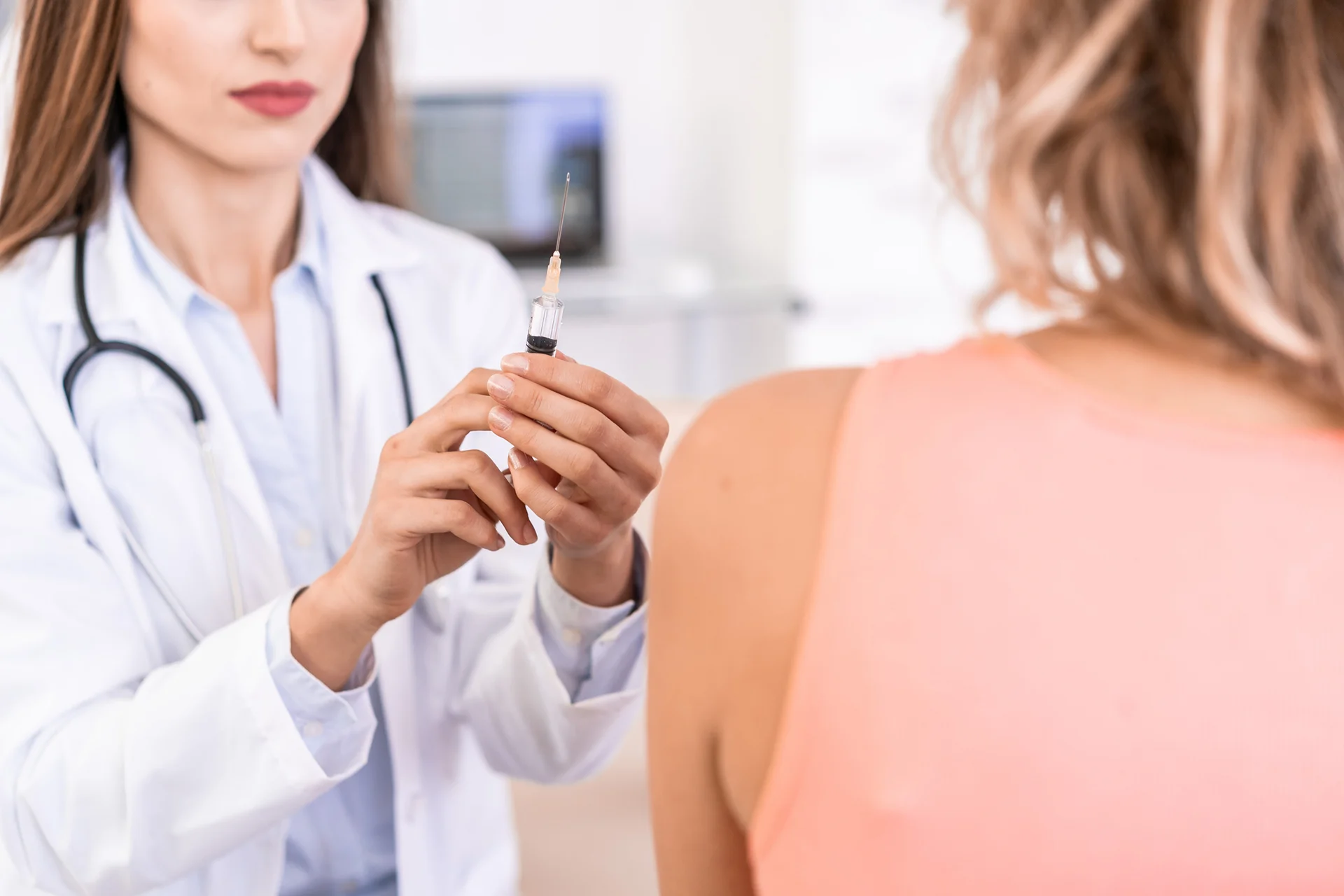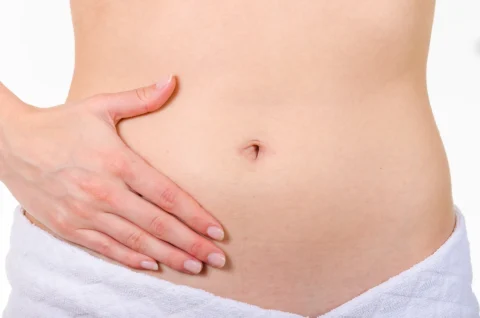Concerned about weight gain from hormone replacement therapy? Learn the facts about how HRT shots like estrogen and testosterone affect metabolism, fat, and muscle.
Hormone replacement therapy (HRT) using shots or injections is a common treatment for symptoms of menopause, low testosterone, and other hormonal imbalances.
But a frequent concern is whether these hormone shots cause weight gain as a side effect. Here’s what you need to know about the link between hormone injections and body weight.
How Hormones Affect Weight
Hormones play a key role in regulating metabolism, fat storage, and muscle mass. Major weight-related hormones include:
| Hormone | Effect on Body Shape |
| Estrogen | Promotes fat storage, especially in the hips and thighs |
| Testosterone | Builds muscle mass and increases metabolism |
| Progesterone | Can cause water retention and bloating |
| Insulin | Enables cells to absorb glucose and signals fat storage |
An imbalance in these hormones, which often occurs during menopause or with age-related testosterone decline in men, can lead to weight gain and difficulty losing weight. HRT aims to restore healthy hormone levels.
Does Estrogen Replacement Make You Gain Weight?
Estrogen therapy is the most common type of HRT for menopausal women. While many women report some weight gain when starting estrogen shots, studies show estrogen itself doesn’t cause an increase in body fat. Instead, any initial weight gain is likely due to water retention and bloating, which usually subsides after a few weeks as the body adjusts.
However, estrogen shots can indirectly contribute to weight gain in a few ways:
- Increased appetite: Estrogen may stimulate hunger signals
- Reduced activity: Menopausal fatigue can lead to less exercise
- Slowed metabolism: Aging and hormonal shifts naturally slow metabolic rate
The key is that estrogen shots alone won’t generate excess pounds if you maintain a balanced diet and regular physical activity. In fact, restoring estrogen levels often helps combat menopausal weight gain and promotes a healthier distribution of body fat.
Can Testosterone Shots Cause Weight Gain?
Testosterone replacement therapy is sometimes used to treat low T levels in men. Unlike estrogen, testosterone tends to promote weight loss, not gain. Testosterone shots can:
- Boost metabolism
- Increase muscle mass
- Reduce body fat, especially abdominal fat
However, testosterone shots can cause weight gain in a few scenarios:
- Excessive doses: Taking more testosterone than prescribed may cause fluid retention
- Lack of exercise: Testosterone builds muscle, but only with strength training
- Poor diet: Eating more calories than you burn will add pounds
When used as directed along with a healthy lifestyle, testosterone therapy is more likely to shift body composition towards more muscle mass rather than cause problematic weight gain.
Other Hormones and Weight Gain
Certain other hormones used in medical treatments may influence weight:
- Progesterone: Often taken with estrogen in HRT, progesterone can increase water retention at first
- Cortisol: High doses of corticosteroids used to treat inflammatory conditions are known to cause weight gain
- Insulin: Insulin shots for diabetes won’t inherently cause weight gain, but low blood sugar from insulin can trigger hunger
The effects of hormone shots on weight often depend on the specific type and dosage of hormones as well as individual factors. Work closely with your doctor to manage any weight-related side effects.
How Can I Avoid Weight Gain During Hormone Therapy?
To avoid weight gain during hormone therapy, it is recommended to adopt a healthier lifestyle by changing your diet and increasing physical activity. A balanced diet and regular exercise can help maintain or achieve a normal weight.
Specifically, a combination of aerobic and resistance exercise can help maintain muscle strength, which is important as hormone therapy can lead to muscle loss. Additionally, hormone therapy can lower bone density, so weight-bearing exercises may also be beneficial in reducing the risk of fractures.
What Is the Best Diet While on Hormone Therapy?
The best diet while on hormone therapy is one that is balanced and healthy. The Mediterranean diet, in particular, has been shown to support overall health and may be beneficial for those on hormone therapy due to its positive effects on cardiovascular health, metabolic syndrome, and gut flora balance.
Do Hormone Injections Help You Lose Weight?
Hormone injections can help with weight loss in certain contexts. For example, growth hormone (GH) treatment has been shown to increase lean body mass and reduce fat mass, particularly in obese children and GH-deficient adults. However, the effects on body weight can vary depending on the individual’s initial weight status and the specific condition being treated.
How To Lose Weight While on Hormones?
To lose weight while on hormones, it is important to combine a healthy diet with regular physical activity. Experts recommend at least 150 minutes of moderate-intensity exercise and two days of muscle strengthening per week. Exercise not only helps with weight control but also can alleviate other symptoms associated with hormone therapy, such as fatigue and hot flashes.
How To Lose Belly Fat From Hormones?
Losing belly fat from hormones involves targeting the midsection where fatty tissue tends to accumulate due to hormonal changes. This can be achieved through a combination of diet, exercise, and lifestyle modifications that focus on reducing overall body fat and strengthening the core muscles.
Do Growth Hormone Shots Make You Gain Weight?
Growth hormone shots can lead to weight gain in some cases. For instance, children with idiopathic GH deficiency or those small for gestational age may experience an increase in body mass index (BMI) during GH treatment.
However, this increase may be beneficial for underweight and obese children. The impact on normal weight children needs further investigation to determine if the weight gain is due to an increase in fat mass, lean body mass, or both.
Why Am I Gaining Weight on Hormone Replacement Therapy?
Weight gain on hormone replacement therapy (HRT) can occur due to the metabolic changes triggered by the decrease in estrogen and progesterone, as well as aging in general.
Muscle tone lost from reduced hormone production is often replaced by fatty tissue, particularly around the midsection. Hormone therapy is not indicated for weight loss and will not help in reducing weight.
Which Hormone Is Responsible for Weight Gain?
Insulin is a key hormone responsible for weight gain, as it regulates blood sugar levels and fat storage. Hormonal imbalances, particularly insulin resistance, can lead to weight gain and type 2 diabetes.
Other hormones that can influence weight include leptin, which regulates appetite, and ghrelin, the hunger hormone. Cortisol, the stress hormone, can also contribute to weight gain when levels are elevated.
What Happens When You Take Hormone Injections?
When you take hormone injections, such as those for weight loss or hormone replacement therapy, they can lead to various changes in the body.
For example, certain hormone injections have been shown to reduce body weight and improve blood glucose levels in patients with diabetes and obesity. However, the effects can vary depending on the type of hormone and the individual’s health condition.
Are Hormone Injections Safe?
Hormone injections are generally considered safe when prescribed and monitored by a healthcare professional. However, they can have side effects and are not suitable for everyone. It is important to discuss the potential risks and benefits with a healthcare provider before starting treatment.
Do Hormone Shots Make Your Breasts Bigger?
Hormone shots can affect breast size in some cases, although this is not a universal effect. Hormonal changes can influence breast tissue, but the impact on breast size will vary from person to person.
Lifestyle Tips to Manage Weight on Hormone Therapy
To maintain a healthy weight while undergoing hormone shot treatments:
- Eat a balanced diet rich in fruits, veggies, lean proteins and whole grains
- Practice portion control to avoid excess calorie intake
- Drink plenty of water to counter fluid retention
- Aim for at least 30 minutes of physical activity 5 days a week
- Incorporate strength training to build metabolism-boosting muscle
- Manage stress through relaxation techniques like meditation or yoga
- Get 7-9 hours of quality sleep each night
- Limit alcohol consumption, which can disrupt hormones
- Don’t smoke, as it lowers estrogen levels and leads to weight gain
- See your doctor regularly to monitor hormone levels and adjust treatment as needed
When to See a Doctor
Consult your doctor if you experience persistent weight gain or other concerning side effects while receiving hormone shot therapy. Severe symptoms like rapid weight gain, shortness of breath, and swollen ankles can indicate a serious reaction that requires immediate medical attention.
Your doctor can test your hormone levels, assess your symptoms, and determine if any treatment modifications are necessary. They may adjust your hormone dosage, recommend lifestyle changes, or explore alternative therapies.
The Bottom Line
In most cases, hormone shots do not directly cause significant weight gain when used as prescribed. However, hormonal changes can influence appetite, metabolism and fluid retention, which may indirectly impact weight. Lifestyle habits are important for managing weight while receiving hormone therapy.
If you’re concerned about weight changes on HRT, talk to your doctor. Together you can develop a treatment plan that optimizes your hormonal health while supporting long-term weight management. With the right combination of hormone therapy and healthy living, you can feel your best inside and out










